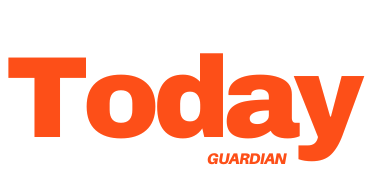Accessing archived news articles can be a valuable resource for research, historical insights, or personal interest. Whether you’re looking for information on a specific event or conducting a deep dive into historical records, there are numerous platforms and tools to assist you. This guide answers common questions and provides tips to help you navigate the world of archived news effectively.
What Are the Best Websites or Platforms to Access Archived News Articles?
There are several excellent platforms for accessing archived news articles:
- Google News Archive: A vast collection of digitized newspapers and articles, searchable by date and keyword.
- Wayback Machine: This tool archives websites, including news portals, offering snapshots of content from specific dates.
- Library of Congress: Hosts historic newspapers and offers free access to digitized archives.
- Chronicling America: A service from the National Endowment for the Humanities, focusing on U.S. newspapers.
- ProQuest and JSTOR: Subscription-based platforms offering extensive archives, including academic and news sources.
Are There Specific Tools for Finding Old News Articles for Free?
Yes, several tools can help you find old news articles without cost:
- Google News Archive: Free but limited to publicly available articles.
- Internet Archive: Offers a free repository of scanned newspapers and magazines.
- HathiTrust: Provides access to historical documents, including newspapers, at no cost.
How Can I Search Archived News Articles by Date or Specific Keywords?
To search archived news effectively:
- Use advanced search filters on platforms like Google News or ProQuest to specify dates and keywords.
- Leverage Boolean operators (e.g., AND, OR, NOT) for precise keyword searches.
- Access libraries or institutional databases that allow customized searches by date and topic.
Do Libraries or Educational Institutions Provide Access to Archived News Articles?
Yes, many libraries and educational institutions provide free or subsidized access to archived news articles through their databases. Public libraries often collaborate with platforms like:
- EBSCOhost
- NewsBank
- Gale Primary Sources
University libraries frequently grant access to subscription services like JSTOR or ProQuest for their students and faculty.
Tips for Using Online Archives Like Google News or the Wayback Machine
- Use Specific Keywords: Start with targeted terms related to the event or topic.
- Refine Your Date Range: Narrowing your search to specific years or months can yield better results.
- Be Patient: Scanned documents may require extra effort to locate and interpret.
Are Subscription Services Like ProQuest or JSTOR Necessary for Accessing Older News?
Subscription services provide extensive and curated archives, often inaccessible through free platforms. While not always necessary, they are invaluable for accessing premium content or newspapers that require licensing for their archives.
Can I Access Historical Newspaper Archives from My Local Library’s Website?
Many local libraries provide remote access to historical archives through their online platforms. Check your library’s website for tools like PressReader, OverDrive, or other newspaper archives. Some libraries also offer interlibrary loans for archival materials.
What’s the Difference Between Publicly Available Archives and Paid Archives for News Articles?
- Publicly Available Archives: Often limited in scope, covering only certain dates or sources. They are free but may lack high-quality scans or premium content.
- Paid Archives: Offer comprehensive collections, advanced search tools, and access to exclusive publications.
How Can I Verify the Authenticity of an Archived News Article?
- Check the Source: Ensure it’s from a credible publication.
- Cross-Reference Information: Compare details with other known archives or sources.
- Look for Metadata: Reliable archives include publication dates, authorship, and original source details.
What Should I Do If I Can’t Find a Specific Article in an Archive?
- Broaden Your Search Criteria: Use alternative keywords or search neighboring dates.
- Contact Libraries or Archivists: They might help locate rare or difficult-to-find articles.
- Explore Paid Services: If free options fail, platforms like JSTOR or ProQuest might have the desired content.



